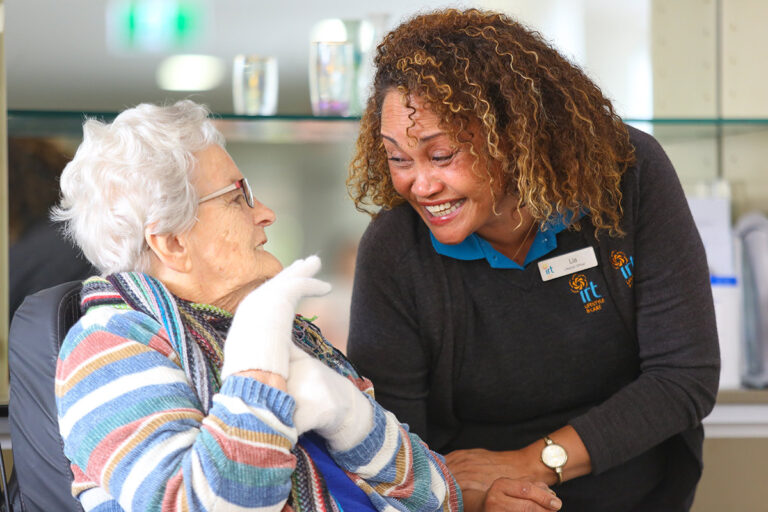What is Alzheimer’s disease?
In this article we explore Alzheimer’s disease, what it is, how it affects you and what you can do to treat it.

So what is Alzheimer's disease? Alzheimer’s disease is a type of dementia or brain disorder that affects memory, thinking and behaviour. There are many different forms of dementia, however according to the World Health Organisation, Alzheimer's disease is the most common form and may contribute from 60 to 70 per cent of cases.
Other common forms of dementia include Vascular dementia, Dementia with Lewy bodies, Frontotemporal Lobar Degeneration, Huntington's disease, alcohol-related dementia (Korsakoff's syndrome) and Creutzfeldt-Jakob disease.
Alzheimer’s disease gets its name from Dr Alois Alzheimer, who recorded the first case of the disease in a middle-aged woman named Auguste Deter in 1907. Three years later, Emil Kraepelin, a German psychiatrist who worked with Dr Alzheimer, named the condition ‘Alzheimer’s disease’ in the eighth edition of his book Psychiatrie. It wasn’t until 1976 that Alzheimer’s disease was recognised as the most common form of dementia, and a major public health challenge across the world.
Alzheimer’s disease can either be sporadic or familial:
Sporadic Alzheimer’s disease
This type of alzheimer's disease affects adults of any age, but usually occurs in people 65 years and older and is the most common form of Alzheimer’s disease.
Familial Alzheimer’s disease
This is a very rare genetic condition and is caused by a mutation in one of the genes. The presence of the mutated gene means that the person will eventually develop the disease, usually in their 40s or 50s.
What causes Alzheimer’s disease?
At this stage, there is no single cause for Alzheimer’s disease. However, experts have identified certain risk factors that increases a person’s chance of developing the disease.
Risk factors may include:
1. Age
Most people who develop Alzheimer’s disease are 65 years or older.
2. Family history
If you have an immediate family member who have developed the condition, such as parents or a sibling.
3. Genetics
Certain mutated genes have been linked to Alzheimer's disease.
Having one or more of these risk factors doesn’t necessarily mean you will develop Alzheimer’s disease – it simply means your level of risk of developing the condition is higher than someone who doesn’t have any risk factors. You can learn more about your level of risk by having a conversation with your doctor or health professional.
What are the symptoms of Alzheimer’s disease?
Everyone can have episodes of forgetfulness from time to time. However, people with Alzheimer’s disease display ongoing symptoms and behaviours that tend to worsen over time.
Alzheimer’s disease usually begins with memory problems and difficulty finding the right words for everyday objects. Other effects of Alzheimer's disease may include:
- Memory loss affecting daily activities, such as an ability to remember appointments
- Trouble with familiar tasks, such as turning the TV on or using a microwave
- Difficulties with problem solving
- Trouble with speech or writing, including vagueness in everyday conversations
- Becoming disoriented about times or places
- Inability to process questions and instructions
- Taking longer to do routine tasks
- Decreased judgement
- Decreased personal hygiene
- Mood and personality changes
- Forgetting well-known people or places, such as a family member or local café
- Withdrawal from friends, family and the community.
It’s important to remember that symptoms of Alzheimer's disease vary between each individual and the disease progresses at different rates for everyone. A person’s abilities may fluctuate from day to day, or over a period of several months, and become worse in times of stress, fatigue or ill health.


What are the stages of Alzheimer’s disease?
The 7 Stages of Alzheimer’s disease, also known as the Global Deterioration Scale (GDS), was developed by Dr Barry Reisberg, Director of the Fisher Alzheimer’s Disease Education and Research Program at NYU Grossman School of Medicine.
The guideline is used by professionals and caregivers around the world to identify what stage of the disease a person is in and demonstrates how Alzheimer's disease progresses.
In summary, Stages 1-3 are the pre-dementia stages; Stages 4-7 are the dementia stages; and Stage 5 is the point where a person can no longer live without assistance.
Here are the 7 stages of Alzheimer's disease broken down in more detail:
Stage 1: No dementia is seen
There are generally no dementia symptoms at this stage, but there may be early monitoring based on family history.
Stage 2: Subjective memory loss
The earliest symptoms appear, such as forgetfulness. This may include forgetting people’s names or having trouble recalling where they have recently placed things.
Stage 3: Mild cognitive impairment
Mild cognitive impairments become noticeable often by someone very close to this person. These impairments can include reduced memory and concentration.
Stage 4: Moderate cognitive decline (mild dementia)
Alzheimer’s disease is often diagnosed with considerable accuracy at this stage. Memory loss and the inability to perform everyday tasks is more evident. This can include the inability to pay rent or other bills, the inability to shop for groceries or difficulty ordering from a menu in a restaurant. Despite these symptoms of moderate Alzheimer's disease, a person at this stage can still potentially live independently in community settings.
Stage 5: Moderately severe cognitive decline (moderate dementia)
Moderate to severe symptoms have reached the stage where help is required from loved ones or caregivers.
Stage 6: Severe cognitive decline (moderately severe dementia)
At this stage, the person may need help with very basic tasks such as eating, bathing and putting on clothes.
Stage 7: Very severe cognitive decline (severe dementia)
This is the most severe and final stage of Alzheimer’s disease, also known as advanced Alzheimer's disease, and may include a loss of speech and facial expressions.
The rate of progression throughout each stage varies from person to person. Usually, Alzheimer’s disease leads to complete dependence on a caregiver and finally death – usually from another contributing illness such as pneumonia. A person may live from three to 20 years with Alzheimer’s disease, with the average lifespan being seven to ten years.
How is Alzheimer’s disease diagnosed?
There is currently no single test to diagnose Alzheimer’s disease. However, there are several ways a clinical diagnosis can be made. These include:
- Detailed medical history
- Thorough physical and neurological examinations
- Test of intellectual function
- Psychiatric assessment
- Neuropsychological tests
- Blood and urine tests
- Lumbar puncture for cerebral spinal fluid tests
- Medical imaging, such as brain scans (MRI, PET).
According to Dementia Australia, these tests are typically used to help eliminate other conditions with similar symptoms.
A brain scan, such as an MRI (Magnetic Resonance Imaging) for example, can detect loss of brain cells, which indicates the disease's progress.
After eliminating other causes, a clinical diagnosis of Alzheimer’s disease can made with about 80-to-90-per-cent accuracy.
What treatment is available?
At present, there is no cure for Alzheimer’s disease. So, how is Alzheimer's disease treated? Treatment is aimed at managing and alleviating the symptoms (like behavioural symptoms) associated with the condition.
Common treatments include:
- Medications – which are often used to treat behavioural symptoms associated with the disease and form part of a comprehensive treatment plan in consultation with a GP or health professional.
- Speech therapy – to help cope with a decline in language abilities. A speech therapist can also help you find alternative ways to communicate.
- Environmental changes – maintaining an environment that doesn’t agitate or upset someone is vital. People with behaviour problems are most comfortable in environments that are familiar, quiet, and away from large crowds. This means a drastic change in environments to something unfamiliar, noisy and busy can be very counter-productive.
Remember, only a medical practitioner such as a doctor or specialist can diagnose dementia, such as Alzheimer's disease. If an official diagnosis has been made, there is a lot of support available to help you and your loved ones manage. A good place to start is by visiting Dementia Australia’s website or by calling the National Dementia Helpline on 1800 100 500. They offer support, information, education and counselling.
Did you know?
- Dementia is the term used to describe a number of neurological conditions that affect a person’s cognitive, behavioural, functional and physical ability.
- There are more than 100 different types of dementia, and each has its own causes.
- Alzheimer’s disease is the most common type of dementia and may contribute from 60 to 70 per cent of cases.
- Dementia is the second leading cause of death in Australia, according to the Australian Bureau of Statistics (2020).
- In 2021, there are an estimated 472,000 Australians living with dementia. Without a medical breakthrough, this number is expected to increase to 590,000 by 2028, and more than 1 million by 2058.
- The biggest risk factor for having Alzheimer’s disease is increasing age, with three in ten people over 85 having dementia.
- Almost 1.6 million Australians are involved in the care of someone living with dementia.
- People with dementia account for 52 per cent of all residents in residential aged care centres.
- Dementia affects almost 50 million people worldwide.
- Every three seconds, someone in the world develops dementia.

Aged care services with IRT
IRT are the leaders in person-centred dementia care. Our innovative Journey of Care model enables us to tailor our dementia care environments, equipment and programs to meet the unique needs of residents living with dementia.
Find out moreYou may also like
11 foods to eat for a good sleep
We discuss 11 foods and drinks that may improve your ability to sleep well at night.
The power of volunteering
To celebrate National Volunteer Week 2018 (21-27 May) IRT recognised its volunteers by launching an annual Volunteer Awards. “Working as a volunteer really helped me…


